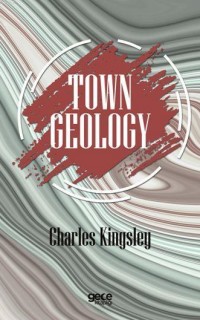
Town Geology
| ISBN | 9786052884577 |
| Yayınevi | Gece Kitaplığı Yayınları |
| Yazarlar | Charles Kingsley (author) |
| Kitap Tanıtımı | This little book, including the greater part of this Preface, has shaped itself out of lectures given to the young men of the city of Chester. But it does not deal, in its present form, with the geology of the neighbourhood of Chester only. I have tried so to recast it, that any townsman, at least in the manufacturing districts of England and Scotland, may learn from it to judge, roughly perhaps, but on the whole accurately, of the rocks and soils of his own neighbourhood. He will find, it is true, in these pages, little or nothing about those "Old Red Sandstones," so interesting to a Scotchman; and he will have to bear in mind, if he belong to the coal districts of Scotland, that the "stones in the wall" there belong to much older rocks than those "New Red Sandstones" of which this book treats; and that the coal measures of Scotland, with the volcanic rocks which have disturbed them, are often very different in appearance to the English coal measures. But he will soon learn to distinguish the relative age of rocks by the fossils found in them, which he can now, happily, study in many local museums; and he may be certain, for the rest, that all rocks and soils whatsoever which he may meet have been laid down by the agents, and according to the laws, which I have tried to set forth in this book; and these only require, for the learning of them, the exercise of his own observation and common sense. I have not tried to make this a handbook of geological facts. Such a guide (and none better) the young man will find in Sir Charles Lyell's "Student's Elements of Geology." I have tried rather to teach the method of geology, than its facts; to furnish the student with a key to all geology, rough indeed and rudimentary, but sure and sound enough, I trust, to help him to unlock most geological problems which he may meet, in any quarter of the globe. But young men must remember always, that neither this book, nor all the books in the world, will make them geologists. No amount of book learning will make a man a scientific man; nothing but patient observation, and quiet and fair thought over what he has observed. He must go out for himself, see for himself, compare and judge for himself, in the field, the quarry, the cutting. He must study rocks, ores, fossils, in the nearest museum; and thus store his head, not with words, but with facts. He must verify—as far as he can—what he reads in books, by his own observation; and be slow to believe anything, even on the highest scientific authority, till he has either seen it, or something like enough to it to make it seem to him probable, or at least possible. So, and so only, will he become a scientific man, and a good geologist; and acquire that habit of mind by which alone he can judge fairly and wisely of facts of any kind whatsoever. |
Kütüphaneniz